[Training] Aquaculture Development Expertise: Mr. Nurmatov’s insights from JICA’s training in Japan
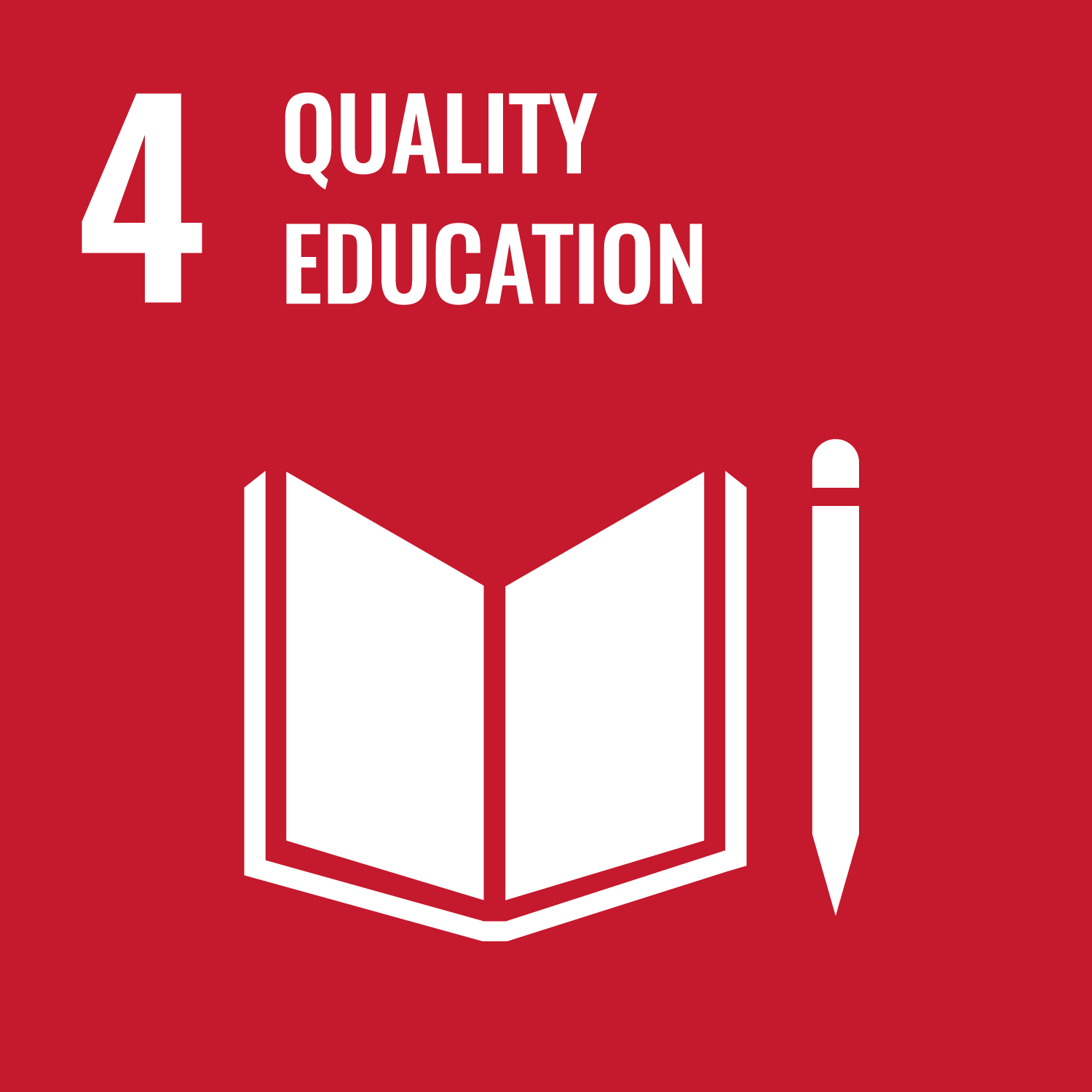
2024.10.30
Mr. Sardor Nurmatov, head of the department of Uzbekistan Fisheries (“Uzbekbaliksanoat”) Association, shares his experience and insights from a short-term training course on development of aquaculture, organized by JICA in Japan:
“To introduce modern innovative technologies into the fisheries industry of Uzbekistan, expand cooperation with foreign countries, organize fish farming on small plots of land and train qualified specialists, I, as a representative of the “Uzbekbaliksanoat” Association, for the first time in Uzbekistan took part in the training seminar “Small-scale Inland Aquaculture”, organized by the JICA in Nagoya, Japan."
The seminar was attended by representatives of government agencies, departments and institutions from Angola, Cameroon, Ghana, Papua New Guinea, Solomon Islands, Nigeria, Mozambique, Jamaica and Uzbekistan.
It should be noted that Japan is one of the leading countries in the world in the development of aquaculture, being one of the main branches of agriculture in the country. In 2023, the fish production volume was 4 million tons per year, which also highlights its reputation for advanced aquaculture technologies.
During the seminar, participants got acquainted with the activities of the “Center for the Development of Inland Aquaculture” at the Gifu Fisheries and Aquatic Research Institute in Nagoya.
This center is equipped with a modern laboratory for the study of fish diseases, their prevention and treatment, as well as for water analysis. The center also has small ponds for breeding local fish species. One of the main tasks of the center is to monitor diseases of river fish, provide technical assistance to fish farms and organize training seminars.
Professors and researchers from the Gifu Fisheries and Aquatic Life Research Institute at this center shared their experience based on Japanese methods regarding the timely diagnosis of fish diseases, methods of their treatment, monitoring water quality, determining its chemical composition, and conducted practical classes on these topics.
In addition, valuable information was provided on the cultivation of the popular Ayu fish in Japan, its natural reproduction, diseases that can occur in this fish and methods of treating them.
Ayu fish (Latin name plecoglossus altivelis, also known as "sweet fish") is a highly prized species from both a culinary and cultural perspective in Japan. It is grown in fresh water and lives in rivers, lakes and coastal waters of Japan. This fish has a delicate body, usually silvery in color, and reaches a length of 20 to 30 cm. Ayu is famous for its sweet, delicate taste (in Japanese "ayu no shiyoyaki") and is used in a variety of dishes, including salt grilling, frying, and for making sushi.
As part of a seminar on the development of aquaculture in small reservoirs, we visited the "Ayu Fry Rearing Center" in Nagoya, Japan. This center deals with incubation, artificial breeding, processing, production of Ayu fry and their release into rivers upon reaching a certain age. The release of fry into rivers contributes to the development of domestic ecotourism, the conservation of biological diversity and the creation of fishing opportunities for the local population and tourists.
It should be noted that the center currently produces over 60,000 kg of Ayu fish fry per year, which are mainly released into the Nagara River.
Together with the training course coordinators, we also visited the World Freshwater Aquarium Aquatotto Gifu. This aquarium has created comfortable conditions for visitors, where you can see large species of marine fish, Japanese carp, animals and marine plants, which attracts the attention of every guest with its unique atmosphere.
In addition, during the training, teachers provided information on how to get a high income from small reservoirs, how to choose the right types of fish for breeding, methods of prevention and treatment of fish diseases, maintaining optimal temperature, methods of growing from caviar to commercial fish, proper feeding , creating efficient reservoirs, as well as about the market economy and international projects of the Japan International Cooperation Agency (JICA).
The most interesting part is that Japan has created special fishing parks that attract people with their unique nature. These parks have all the conditions for fishing and recreation for both local residents and tourists. The Globally Important Agricultural Heritage System (GIAHS) has developed several programs to develop fisheries and domestic tourism, one of which is aimed at attracting children to fishing. At Ayu Park on the Nagara River, hand-catching and eating fish is organized, and more than 150 thousand people took part in this program throughout the year.
Japan is advanced not only in the field of seafood processing but also in the processing of aquaculture products. Advanced technologies and effective management systems in this sector ensure that Japan holds leading positions among global leaders in the processing of seafood and aquaculture products.
During the training course, we visited the company "Uoko Co. Ltd," located in Saku City. The company specializes in processing products produced in the field of aquaculture, and it processes fish through boiling, adding various sauces, and vacuum packaging. As a result, the finished fish products are distinguished by their unique taste and quality.
After successfully completing the training seminar on "Developing Aquaculture in Small Water Bodies," held in Nagoya, Japan, participants were awarded special certificates by the leadership of the Japan International Cooperation Agency (JICA).
Japan's experience in the field of aquaculture, including new innovative methods and technologies for intensive fish farming in small water bodies, scientific advancements, timely diagnosis of fish diseases and the most effective methods for combating them, acclimatization of new fish species, and development of ecotourism, will contribute to the development of the aquaculture sector in our country and the broad implementation of relevant programs in the regions.
I express my sincere gratitude to the Japan International Cooperation Agency (JICA) and the instructors for providing the opportunity to participate in the seminar. I plan to apply the acquired knowledge and experience in my professional activities. I thank all participants of the training course for their contribution to my education and for the inspiration. I look forward to continuing our collaboration and achieving new successes in the future.
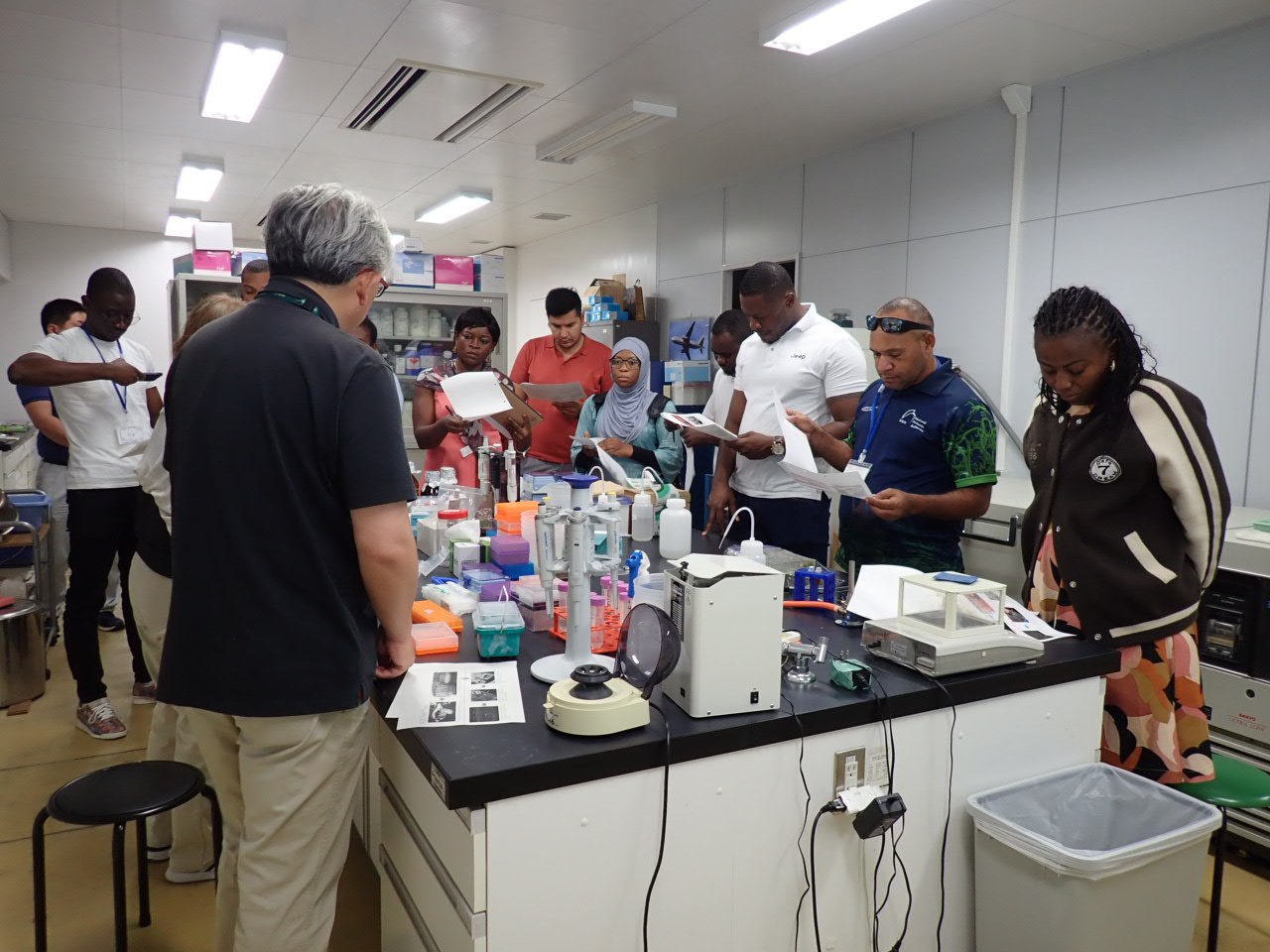
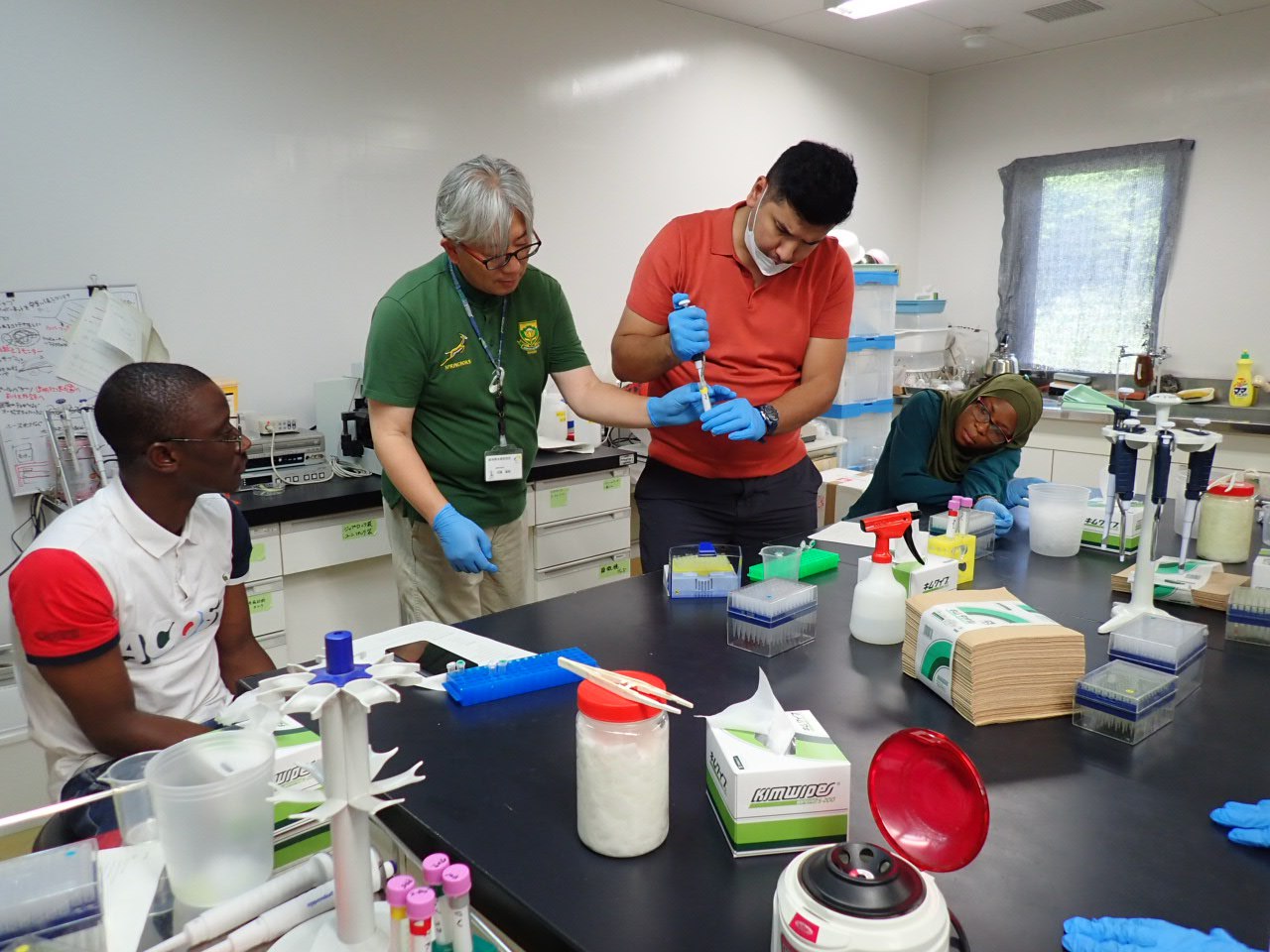
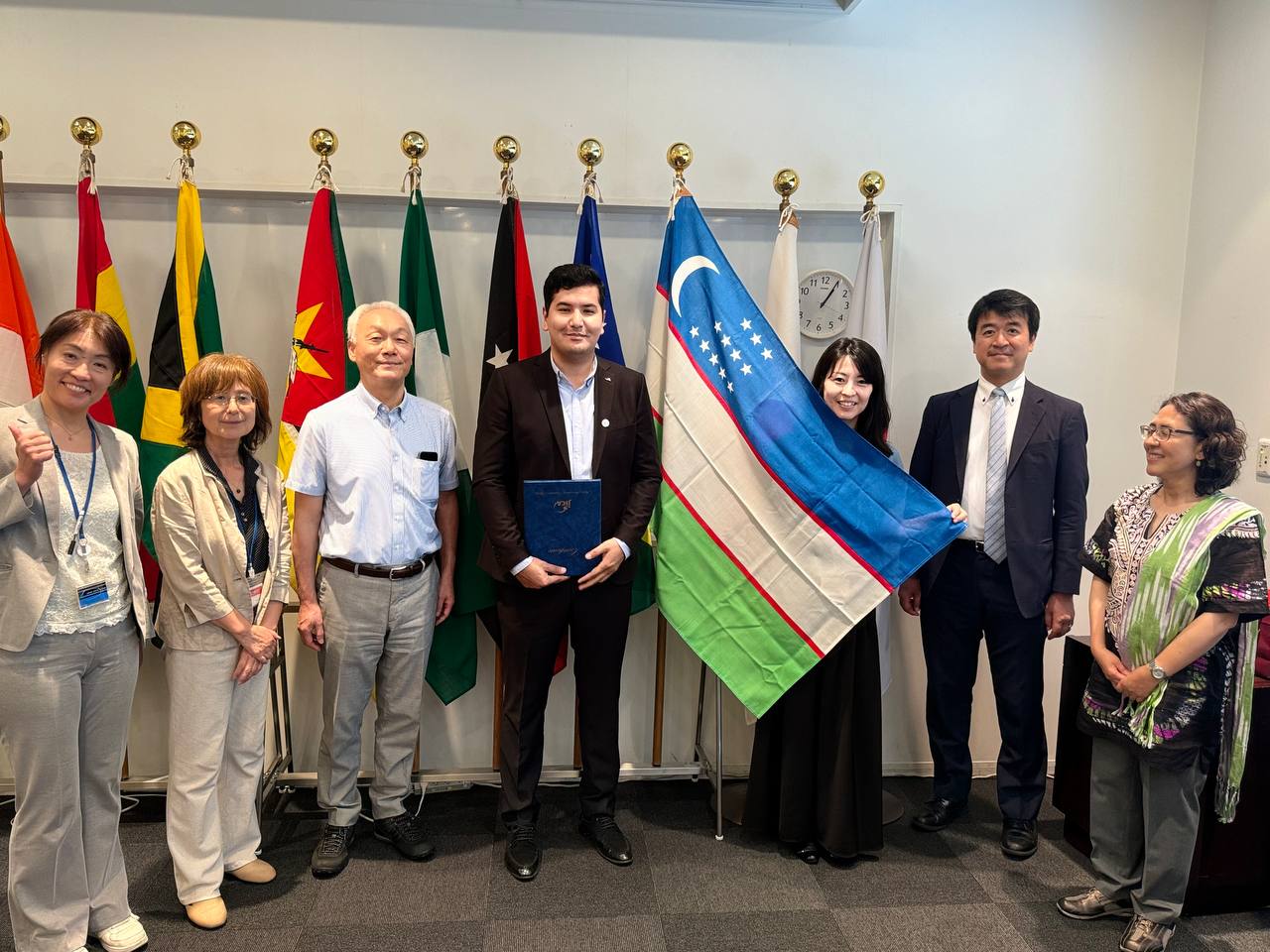
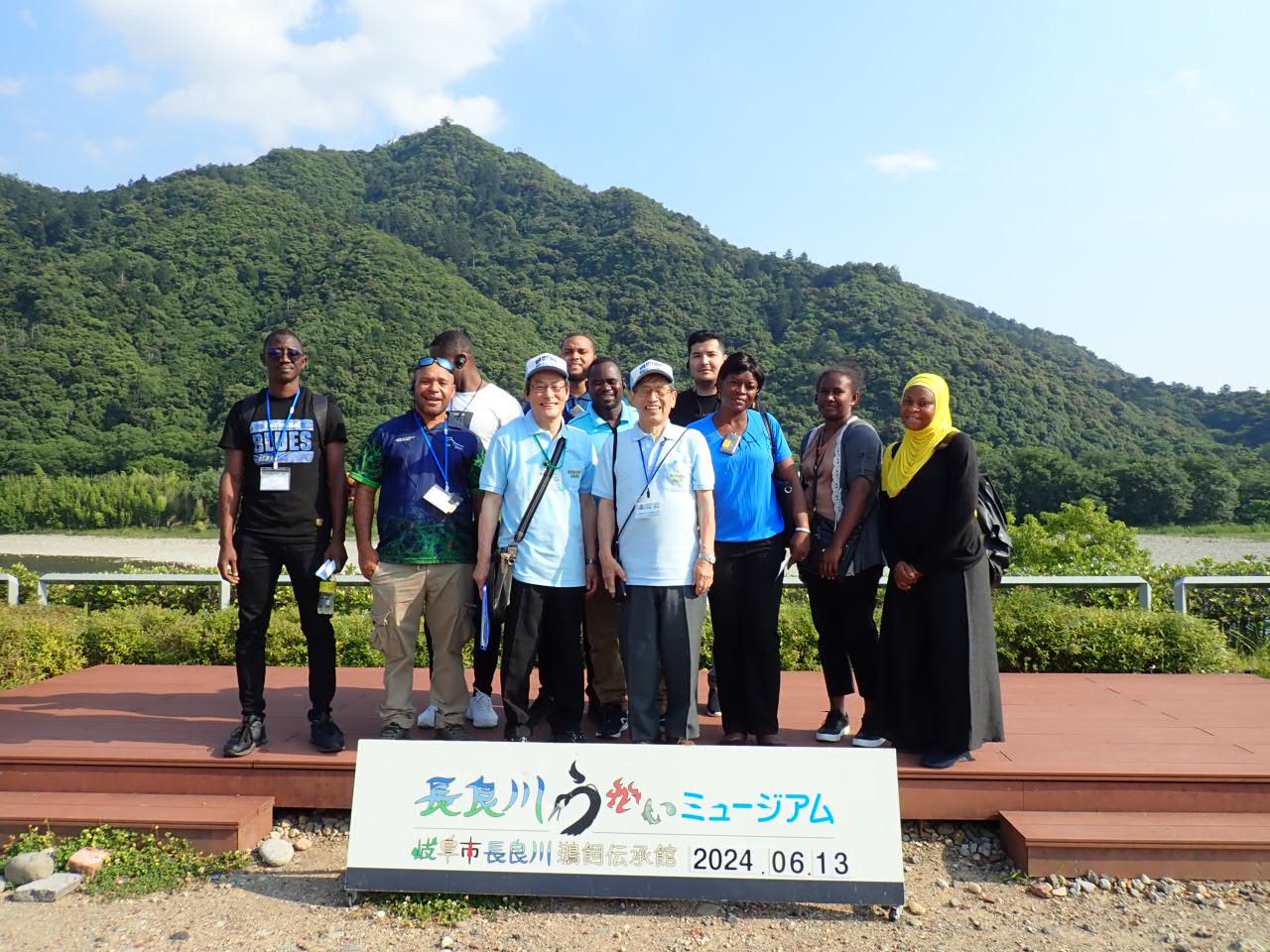
scroll